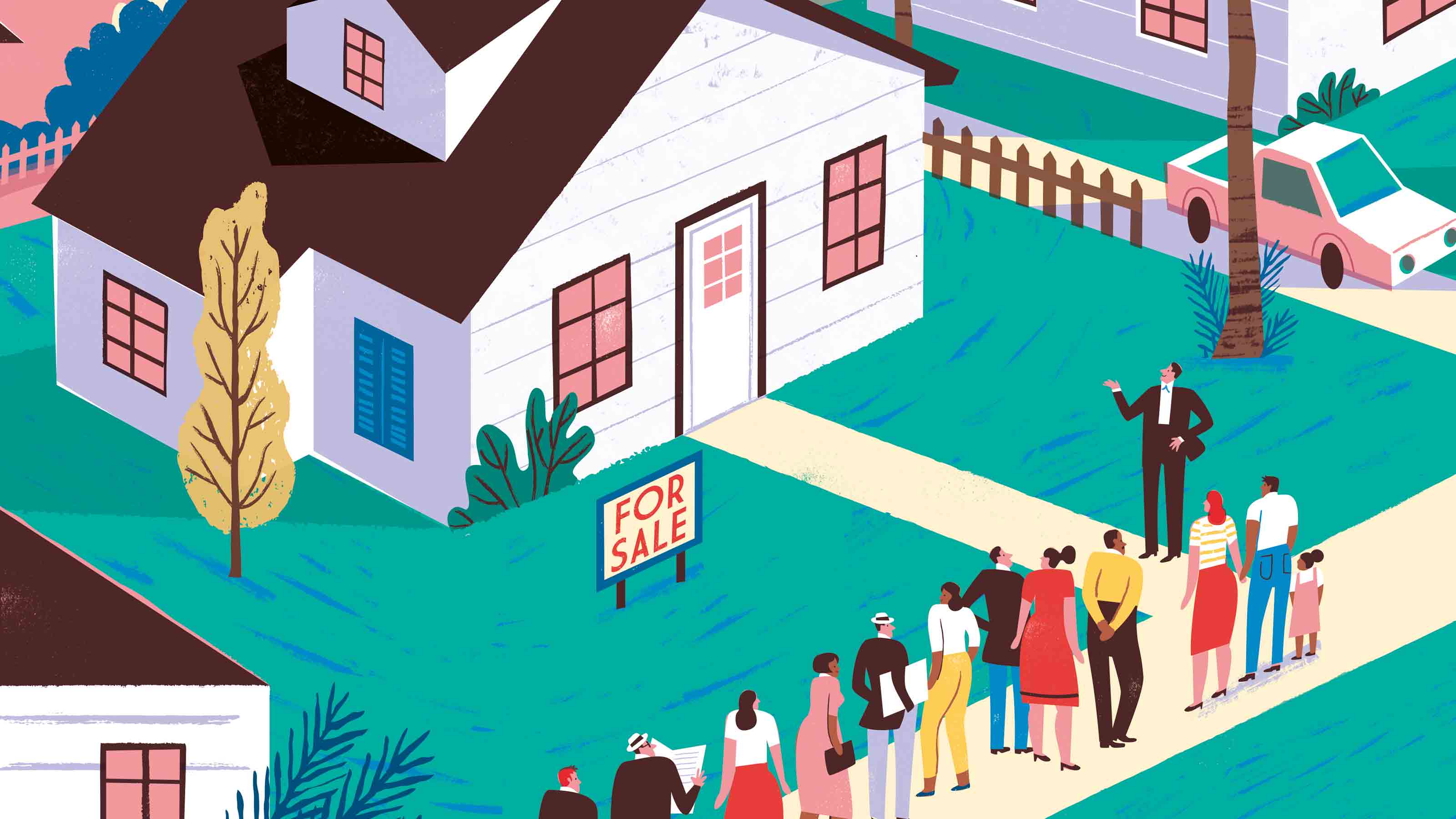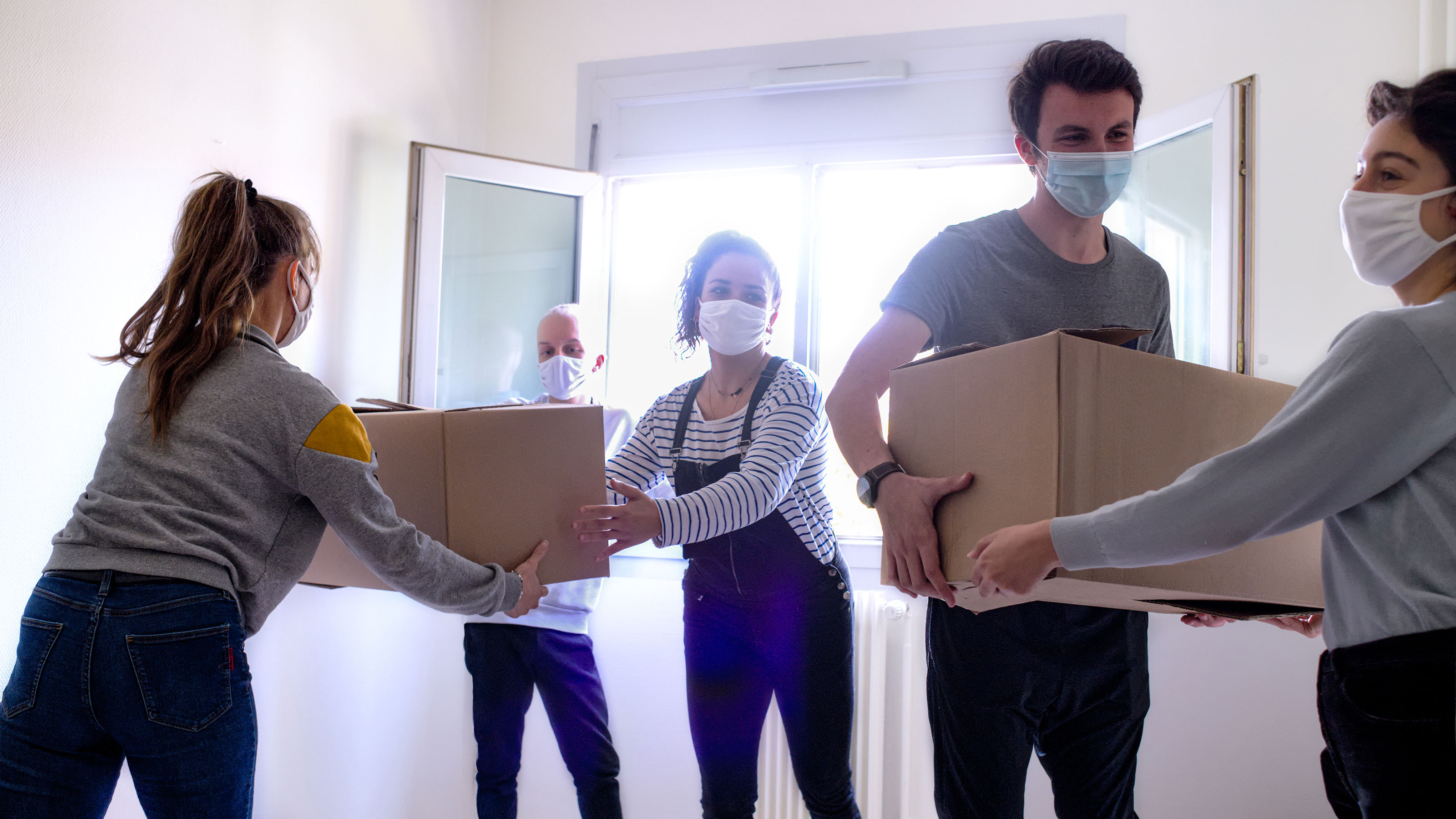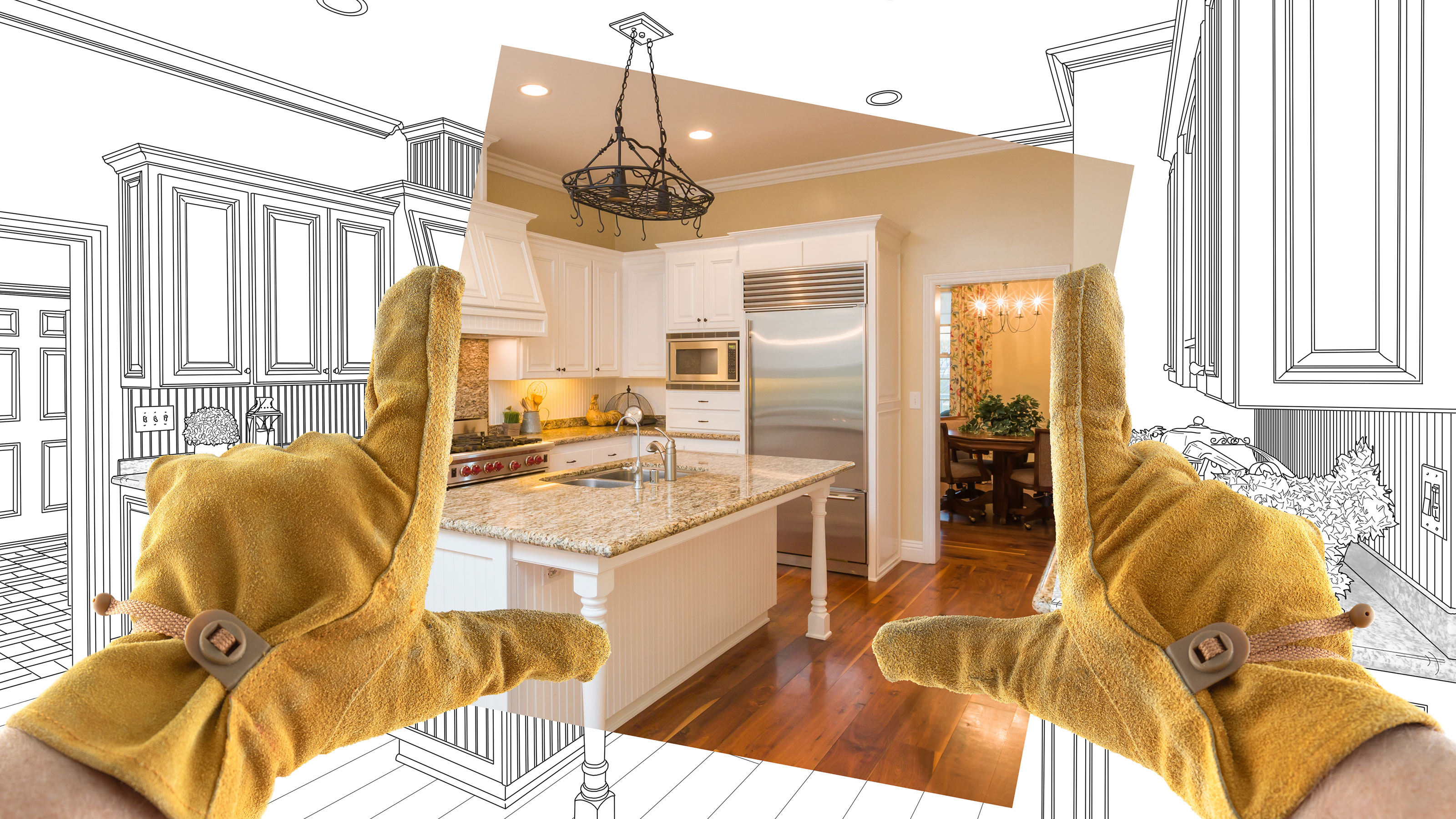Profit and prosper with the best of Kiplinger's advice on investing, taxes, retirement, personal finance and much more. Delivered daily. Enter your email in the box and click Sign Me Up.
You are now subscribed
Your newsletter sign-up was successful
Want to add more newsletters?

Delivered daily
Kiplinger Today
Profit and prosper with the best of Kiplinger's advice on investing, taxes, retirement, personal finance and much more delivered daily. Smart money moves start here.

Sent five days a week
Kiplinger A Step Ahead
Get practical help to make better financial decisions in your everyday life, from spending to savings on top deals.

Delivered daily
Kiplinger Closing Bell
Get today's biggest financial and investing headlines delivered to your inbox every day the U.S. stock market is open.

Sent twice a week
Kiplinger Adviser Intel
Financial pros across the country share best practices and fresh tactics to preserve and grow your wealth.

Delivered weekly
Kiplinger Tax Tips
Trim your federal and state tax bills with practical tax-planning and tax-cutting strategies.

Sent twice a week
Kiplinger Retirement Tips
Your twice-a-week guide to planning and enjoying a financially secure and richly rewarding retirement

Sent bimonthly.
Kiplinger Adviser Angle
Insights for advisers, wealth managers and other financial professionals.

Sent twice a week
Kiplinger Investing Weekly
Your twice-a-week roundup of promising stocks, funds, companies and industries you should consider, ones you should avoid, and why.

Sent weekly for six weeks
Kiplinger Invest for Retirement
Your step-by-step six-part series on how to invest for retirement, from devising a successful strategy to exactly which investments to choose.
Ah, your first apartment. It may be smaller than a closet with a next-door neighbor who likes to blast Celine Dion into the wee hours of the morning, but hey, it's a space to call your own. Whether you're moving away from college or out of Mom and Dad's house this summer, getting your first real place can be a liberating -- and nerve-wracking -- experience.
See Our Slide Show: 10 Affordable Big Cities for Renters
Trust us, there are worse situations you can find yourself in as a first-time renter than tight spaces and annoying neighbors. Moving into your own apartment may be one of the biggest financial steps you've taken thus far in your life. In this rite of passage, you're committing to stay put for a long time while shelling out a pretty penny on rent, utilities and furniture. So, naturally, you want to do it right. We detail seven sins that can threaten your financial soul -- and your sanity -- upon moving into your own space. Avoid these missteps for a smoother transition, whether you're a first-timer or a even a seasoned renter.
1. Underestimating the Cost
The first item of business when looking for a place to live: How much you can afford to spend on housing? Use our budgeting tool to help tally your monthly expenses and see how much money you'll have left to spend on rent. Then, find out how much apartments cost in your desired neighborhood by browsing newspaper classified ads or online rental sites such as Move.com or Craigslist.org. This will help you determine if you can even afford to make the move, and whether you'll need a roommate (or two) to split the costs. (Find out where you can get a good roommate.)
From just $107.88 $24.99 for Kiplinger Personal Finance
Become a smarter, better informed investor. Subscribe from just $107.88 $24.99, plus get up to 4 Special Issues

Sign up for Kiplinger’s Free Newsletters
Profit and prosper with the best of expert advice on investing, taxes, retirement, personal finance and more - straight to your e-mail.
Profit and prosper with the best of expert advice - straight to your e-mail.
But rent isn't the only cost for which you have to budget. Don't forget to anticipate your "start-up" expenses when you first move in. For example, you may need to pay an application fee for the apartment (say, $50), a security deposit (usually equal to one-month's rent), your first month's rent, a deposit to turn on the electricity (maybe $75), a deposit to turn on the gas (another $75), fees to get your cable and telephone turned on, a deposit for any pets you may have, and maybe even a fee for a parking space. And let's not forget the cost of furnishing your new pad. All in all, it can cost you upwards of $4,000 in your first month at your new apartment, according to research firm Twentysomething Inc.
One note of caution: Don't rely on your credit cards to fund your move-in expenses. You don't want to start out your new life of independence by being chained to ruthless interest payments. Once you get into debt, it's hard to break away. See FreeMoneyFinance.com's Escape the Credit Card Trap to learn more.
Once your start-up expenses are covered, don't forget to account for other monthly expenses that come with your new space, including gas and electricity bills and garbage and water fees. And if you're moving from campus housing where your phone service, cable TV and Internet connection were either free or cut-rate, remember to factor real-world prices into your budget. Consider this, too, if you're moving into a place by yourself when you're used to splitting costs among roommates or living free under Mom and Dad's roof. Make it easy on yourself to keep track of your expenses by setting up a budget.
2. Not Getting Your Priorities Straight
Before you embark on an apartment hunt, write down a list separating your needs from your wants. Needs are those things without which you just can't live. For example, my husband and I own just one car, so for us, proximity to work or to public transportation is a need. Wants, however, are those things that would be nice to have, but you could live without for the right price. For example, you may want a gym or a first-floor unit, but they may not be deal breakers.
Sorting out your needs and wants will help keep you from making a choice you may regret later -- say, snagging an apartment with a great city view but having to suffer a grueling commute to work. Remember, your first place isn't going to be perfect, so you need to know which things you can let slide beforehand. Besides, you can always move up to a better apartment when your lease is up. Learn more about what to consider when looking for a new apartment.
3. Not Seeing the Apartment Before Moving In
It's a good idea to take a look at the place you plan to call home before you arrive on moving day and discover your sofa won't fit through the front door. If possible, this means you should inspect the actual apartment you'll be moving in to -- not a model. Bring a measuring tape and try to visualize your furniture in the space. You should also take note of the number and location of phone and cable jacks and electrical outlets.
Don't be afraid to put the apartment through its paces. Turn on the faucets and flush the toilet to make sure the water is running properly (and that it isn't brown). If the power is on, turn on the lights, oven, air conditioner and other appliances to make sure they work. Tune in to the surroundings -- is there a lot of traffic or neighbor noise, or any strange smells? Are the building's hallways, common areas and parking lots clean and well-lit? Are there enough washers and dryers in the laundry room? And don't forget to check out your cell phone's reception from inside the apartment.
You also should inspect the space for damage and request that serious problems be fixed before you move in your stuff. Then, on moving day, go through the apartment with a pen and paper -- and a fine tooth comb. Write down every defect, no matter how seemingly small, date and sign your list, make a copy of it and give one to your landlord. You don't want to be held liable for pre-existing damages.
4. Failing to Read the Lease
A lease is a legally binding contract between you and the landlord, spelling out each of your rights and the rules you must abide by while living in the space. This means it's written in that kind of legal-speak that causes your eyes to glaze over and your mind to go numb. But it's worth your while to f-o-c-u-s and read it all the way through or you may find yourself on the hook for different fees, penalties and restrictions after you've signed on the line. Don't worry about digesting it all on the spot. In fact, you should take it home to read through before you sign, advises consumer advocate Clark Howard. "If you don't understand something, put question marks next to the item and get an explanation," he says.
Every lease will include some basic information, such as the address of the apartment, the length of the lease (say, six months or one year), the amount of rent due, the amount of the security deposit, and the signatures of the landlord and all tenants. That's all pretty straightforward, but there are additional clauses that could have a big impact on your wallet and your lifestyle. Keep an eye out for penalties for late rent, policies for owning pets, what utilities the landlord pays and which ones you're responsible for, policies on painting or altering the apartment, protocol for what to do if something breaks or needs repair, penalties for moving before your lease term is up, policies on subletting and having roommates or even stipulations for having roommates of the opposite sex. I once even had a lease that specifically prohibited owning a piano or organ.
Also, make sure you know what happens to your lease agreement at the end of the term. Usually, your contract will become a month-to-month arrangement, but read the fine print ahead of time to be sure and to learn how much notice is required before moving out. Pick up a copy of the excellent Every Tenant's Legal Guide from Nolo Press to learn more about your rights and responsibilities as a renter.
5. Not Asking About Utilities -- or Forgetting to Turn Them On
On occasion, eating takeout by candlelight may be romantic. But doing it every night, storing your garbage on your balcony and taking cold showers every morning is just plain sad. So before you move in, make sure you ask your landlord specifically what utilities you're responsible for paying -- and for turning on. Some apartment buildings, for example, will provide the garbage and water service as part of your rent but leave you to arrange your own gas and electric service. Others may require you to handle everything. And don't forget the extras, such as a phone line, Internet service and cable TV.
Once you know what you need, find out whom to call. Your landlord should be able to provide you with the names and numbers of the local utility companies. Call them at least one week before you move in and arrange to have your service turned on the day before your arrival.
6. Going Without Renter's Insurance
Unless you have enough money saved to replace everything you own in case of theft, fire or other disaster, you need renters' insurance. Sure, your landlord probably has insurance, but it only covers the building and the infrastructure -- not the stuff you keep in your own unit, says Doug Culkin, executive vice president of the National Apartment Association. You may not think you own much of anything of value, but once you tally up the cost of all your clothes, furniture, computer, software, entertainment system, microwave and CD collection, renters' insurance can add up to a real bargain. Besides, some landlords may require renters' insurance before you move in.
Expect to pay $150 to $250 a year, or $12 to $21 a month. You may pay more or less depending on your neighborhood and level of coverage. You can get quotes from several companies online at InsWeb.com or NetQuote.com, but check with your auto insurer first to see if you can get a discount for having more than one policy with the company.
7. Forgetting Basic Items to Make a Home
If you've never lived on your own before, you're bound to be short a few essentials. For example, I didn't realize when I moved into my first place that a shower curtain wasn't included. I also thought I had planned ahead by packing a bunch of canned food to subsist on for a couple days before my roommate (with the car) moved in -- only to realize she was bringing the can opener too. Oh, and then there's the time I lived in an apartment for a month without a couch -- cozying up for a night of watching my favorite TV show on a metal kitchen chair just wasn't the same. Hopefully, you've already thought of the big stuff, like seating, bedding, a dresser, etc. (Learn more about how to furnish your new place on a budget.)
But you'll need some smaller basics, too. In addition to the aforementioned shower curtain and can opener, don't forget to bring a waste basket (and liners), lamps, dinnerware, bookshelves, a full-length mirror, cleaning supplies, sponges, towels, bathroom rug, flashlight, vacuum, broom and dustpan. Plus, invest in a small toolkit with a hammer, pliers and screwdrivers so you can hang pictures and assemble your new furniture. For more help on what you'll need, print off these apartment checklists from About.com.
You might want to share the cost of outfitting your new place with your roommates. One person can buy the DVD player, for example, while another picks up a vacuum. This is better than splitting the cost of a single item because then there's no question about who owns it when one person moves out. Get more financial tips for living with roommates.
Profit and prosper with the best of Kiplinger's advice on investing, taxes, retirement, personal finance and much more. Delivered daily. Enter your email in the box and click Sign Me Up.

-
 Nasdaq Leads a Rocky Risk-On Rally: Stock Market Today
Nasdaq Leads a Rocky Risk-On Rally: Stock Market TodayAnother worrying bout of late-session weakness couldn't take down the main equity indexes on Wednesday.
-
 Quiz: Do You Know How to Avoid the "Medigap Trap?"
Quiz: Do You Know How to Avoid the "Medigap Trap?"Quiz Test your basic knowledge of the "Medigap Trap" in our quick quiz.
-
 5 Top Tax-Efficient Mutual Funds for Smarter Investing
5 Top Tax-Efficient Mutual Funds for Smarter InvestingMutual funds are many things, but "tax-friendly" usually isn't one of them. These are the exceptions.
-
 How to Search For Foreclosures Near You: Best Websites for Listings
How to Search For Foreclosures Near You: Best Websites for ListingsMaking Your Money Last Searching for a foreclosed home? These top-rated foreclosure websites — including free, paid and government options — can help you find listings near you.
-
 Four Smart Steps To Take Before Buying Your First Home
Four Smart Steps To Take Before Buying Your First Homehome Buying your first home can be daunting. Here are four things you need to do years before you start house-hunting to prepare financially for the biggest purchase of your life.
-
 Five Big Steps to Buying Your First Home
Five Big Steps to Buying Your First Homereal estate We told you how to prepare years ahead of your first home purchase. Now here is how to close the deal.
-
 Retirees, A Healthy Condo Has a Flush Reserve Fund
Retirees, A Healthy Condo Has a Flush Reserve FundSmart Buying Reserve funds for a third of homeowner and condo associations have insufficient cash, experts say. Here are some cautionary steps you should take.
-
 Negotiate a Better Deal
Negotiate a Better DealSmart Buying For a price break on a number of products and services, all you have to do is ask. But first read up on tactics the experts use.
-
 How to Win in a Red-Hot Housing Market
How to Win in a Red-Hot Housing MarketBecoming a Homeowner Whether you’re a buyer or a seller, these strategies will help you get the best deal.
-
 Keep Moving Costs in Check
Keep Moving Costs in CheckMaking Your Money Last If I've learned anything, it's that moving is almost always more costly and time-consuming than I anticipate.
-
 Home Upgrades That Pay Off
Home Upgrades That Pay OffSmart Buying Some affordable renovations recoup most of their cost when you sell.
